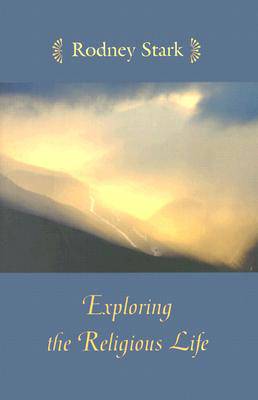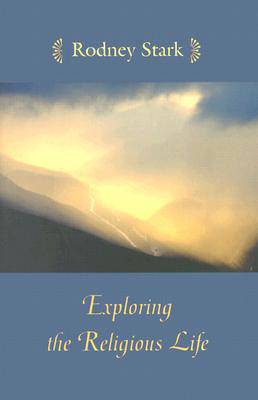
- Afhalen na 1 uur in een winkel met voorraad
- Gratis thuislevering in België vanaf € 30
- Ruim aanbod met 7 miljoen producten
- Afhalen na 1 uur in een winkel met voorraad
- Gratis thuislevering in België vanaf € 30
- Ruim aanbod met 7 miljoen producten
Omschrijving
Though religion is for most people one of the most important aspects of their lives, social scientists and other observers of human society too often misunderstand and misrepresent the nature and role of religion in history and in daily life. From the supposed decline of religious attitudes in Western Europe and the venal motivations attributed to the Christian Crusaders to the very definition of religion, personal biases and an inadequate grasp of relevant data have led to the formulation and propagation of unsupportable views on the sacred. In Exploring the Religious Life, Rodney Stark boldly overturns much received wisdom within the social sciences about religion, drawing on a wide range of sources to reassess a diverse selection of topics in the study of religion.
In his first essay, Stark addresses the carelessness with which scholars use the term religion and the conviction that the belief in divinity evolved from the practice of magic in primitive cultures. In subsequent chapters, he challenges the widespread attitude among social scientists that religion is nothing more than a mask for material realities and examines the effectiveness of religious doctrines in attracting converts and influencing individuals; uncovers the surprising prevalence of upper-class asceticism in medieval Christianity; and explores the relationship between gender, piety, and criminal activity. Divine revelation is a central aspect of many religions, and Stark next applies empirical research to the phenomenon to assess its meaning in Judaism, Christianity, Islam, and Mormonism. He then turns to the confusion between faith and practice in debates over the secularization of the developed world before investigating the validity of the classic proposition within the social sciences that religion functions to sustain the moral order. He does so, examining the correlation between criminal behavior and depth of religious belief. Stark concludes with an essay on the ingenious methods he uses to unearth data about the popularity of new religions in California and northern Europe, the decline of Christian Science in America, the spread of Christianity in the Roman world, and the execution patterns during the antiwitchcraft frenzy of Enlightenment Europe.
Together, the essays that constitute Exploring the Religious Life offer an engaging introduction to Rodney Stark's provocative insights and a fearless challenge to academic perceptions about religion's place in history, society, and private life.
Specificaties
Betrokkenen
- Auteur(s):
- Uitgeverij:
Inhoud
- Aantal bladzijden:
- 220
- Taal:
- Engels
Eigenschappen
- Productcode (EAN):
- 9780801878442
- Verschijningsdatum:
- 1/04/2004
- Uitvoering:
- Hardcover
- Formaat:
- Genaaid
- Afmetingen:
- 186 mm x 235 mm
- Gewicht:
- 462 g

Alleen bij Standaard Boekhandel
Beoordelingen
We publiceren alleen reviews die voldoen aan de voorwaarden voor reviews. Bekijk onze voorwaarden voor reviews.











